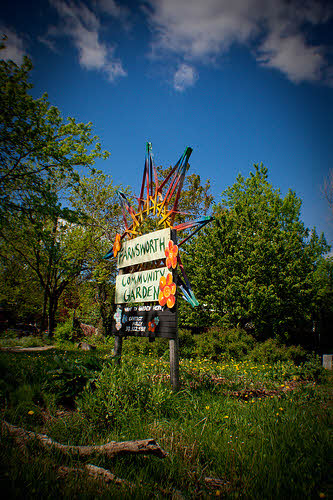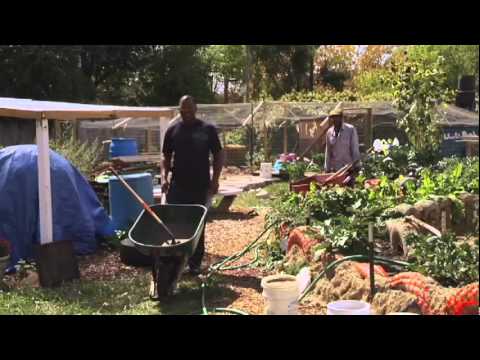
Editor’s note: This post is the first in our series on urban agriculture success stories.
Under 50 years old? Than it’s probably difficult not to associate the phrase “urban decay” with Detroit, Michigan… as long as I can remember, this once thriving manufacturing hub has been the symbol of how bad it can get when business and citizens start heading for the suburbs.
We’ve all see the American auto industry pick back up recently… but it also looks like the Motor City will not be putting all of its economic eggs in one basket from this point forward. One element of urban revitalization that’s taken hold: urban agriculture. In fact, despite all of its challenges, Detroit has become a national leader in the development of small scale, inner city food production.
As the Christian Science Monitor pointed out just over a year ago, the city’s distressed past ironically makes it ideal for urban farming: “…land is cheap, empty lots are plentiful, and residents are desperate for jobs.” Residents, non-profits, businesses and the local government all think that food production within the city could contribute to its upswing. Some of the outgrowths of this enthusiasm includes
- The formation of the Detroit Black Community Food Security Network, an umbrella organization that both promotes and engages in urban agriculture as a way to increase access to fresh food, promote healthier eating habits in the city’s African-American community, and train young people for jobs in food production-related fields (everything from agriculture to animal husbandry to bee keeping).
- The creation of the Garden Resource Program Collaborative, which brings together non-profit and academic organizations “to support urban gardening and farming initiatives in Detroit, Hamtramck, and Highland Park.”
- Planning for Hantz Farms, a for-profit venture that aims to create the world’s largest urban farm in Detroit.
- The establishment of many smaller, community and non-profit urban farms and community gardens throughout the city: Urban Farming™ currently lists eighteen such farms in Detroit.
- The production of the film Urban Roots, which documents Detroit’s efforts to expand small scale farming in the city. Take a look at the trailer for the film
No doubt I’m just scratching the surface here… if you know more about Detroit’s urban agriculture efforts, tell us about them…
Next in our series: Chicago
Image credit: Angela Anderson-Cobb at Flickr under a Creative Commons license


Buildingwell
This is a great feature on the successes of urban farming. Such a movement though is not limited to those communities facing such urban decay as Detroit. It can also work for buildings that are looking to go green – by reconfiguring your roof into a green roof you can not only reduce the heating/cooling needs of the building but also provide a space for residents to do some urban farming. http://www.buildingwell.org/Energy+Efficiency+-+Building+Shell+-+Roof